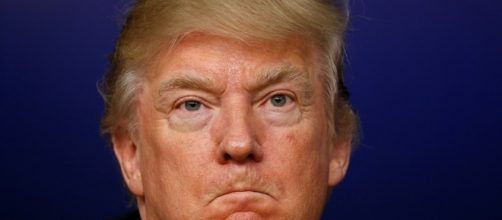US president Donald Trump has backtracked and decided to renegotiate NAFTA with Canada and Mexico. The decision came to qualify as "the worst in history" is a defeat of the more nationalist and xenophobic Trump. The reversal was the result of an agonizing process. A sector of the White House, led by chief strategist, Steve Bannon, worked at breaking the treaty.
The announcement of a rupture did not imply the immediate cessation of the agreement, but would have opened a window of six months, before its end. Drafts of this exit, which even gave dates, circulated on Wednesday by Washington, led the media to believe that the end of the agreement was imminent.
But the opposition of the so-called realist sector, led in this case by Commerce Counselor Gary Cohn, managed to twist Bannon's arm.
Canada and Mexico stand to benefit
The magnitude of the affected economies was in their favor: Canada and Mexico are the second and third trading partners of the United States. The end of the treaty, after 23 years in force, would have led to formidable turbulence that would have first dragged Mexico, which directs 80% of its exports to the US, but would have ended up affecting Washington.
Trump also took to Twitter to report his decision:
I received calls from the President of Mexico and the Prime Minister of Canada asking to renegotiate NAFTA rather than terminate. I agreed..
— Donald J. Trump (@realDonaldTrump) April 27, 2017
...subject to the fact that if we do not reach a fair deal for all, we will then terminate NAFTA. Relationships are good-deal very possible!
— Donald J. Trump (@realDonaldTrump) April 27, 2017
The decision came late Wednesday afternoon.
With the Mexican peso and the Canadian dollar in freefall, Trump gave orders to maintain the treaty and begin its renegotiation. As early as Thursday morning, Trump could not avoid his verbal bullying, and, in order not to lose negotiating pressure, threatened again: "If we do not reach a fair agreement for all, then we will put an end to the Treaty."
The turn, demagoguery apart, shows the weakness of his electoral speech.
During the campaign, the treaty was a continuous target of his anger, and, in the quest for the White Labor vote, served to shore up his economic nationalism. In this radicalization, they applauded Brexit and asked for the United States to exit the treaty as a way to achieve "independence." Already in the White House, the reality has been a tempering of its bravado, although the cost has been very high, especially with the weak neighbor.
The day of rumors and speculation showed again the fragility of Mexico before the United States. About 100 days after Trump's arrival at the White House, Mexico managed to calm doubts generated by all the threats of the president of the United States towards his neighbor to the south. The worst economic forecasts fled -- the dollar stood at 18.5 pesos, a level similar to what it was before the US elections -- and the controversy over the construction of the wall dissipated.
The meetings
In fact, communication between officials of both administrations was smooth. Chancellor Luis Videgaray, has traveled to Washington on several occasions to meet with Secretary of State Rex Tillerson and Security Secretary John Kelly, who also traveled to the Mexican capital.
The Secretary of Economy, Ildefonso Guajardo, has also maintained constant contact with his American counterparts. No concrete data transpired to ensure that the situation improved, but the feeling was that the worst had already happened.
The last week, however, was again bizarre. The cordial tone of the more rational officials of the Trump Administration met, again, with the highness of his boss. Trump once again insisted that Mexico would somehow pay for the border wall and began to send disturbing messages about the future of the FTA, which began to bother Mexican officials and their teams. Videgaray insisted that Mexico would not sign a renegotiation at any price. The firmness that the Mexican chancellor tried to show, met, 24 hours later, with the uncertainty that propagates Trump with each step. Again, his unpredictability hit the most frail neighbor.

